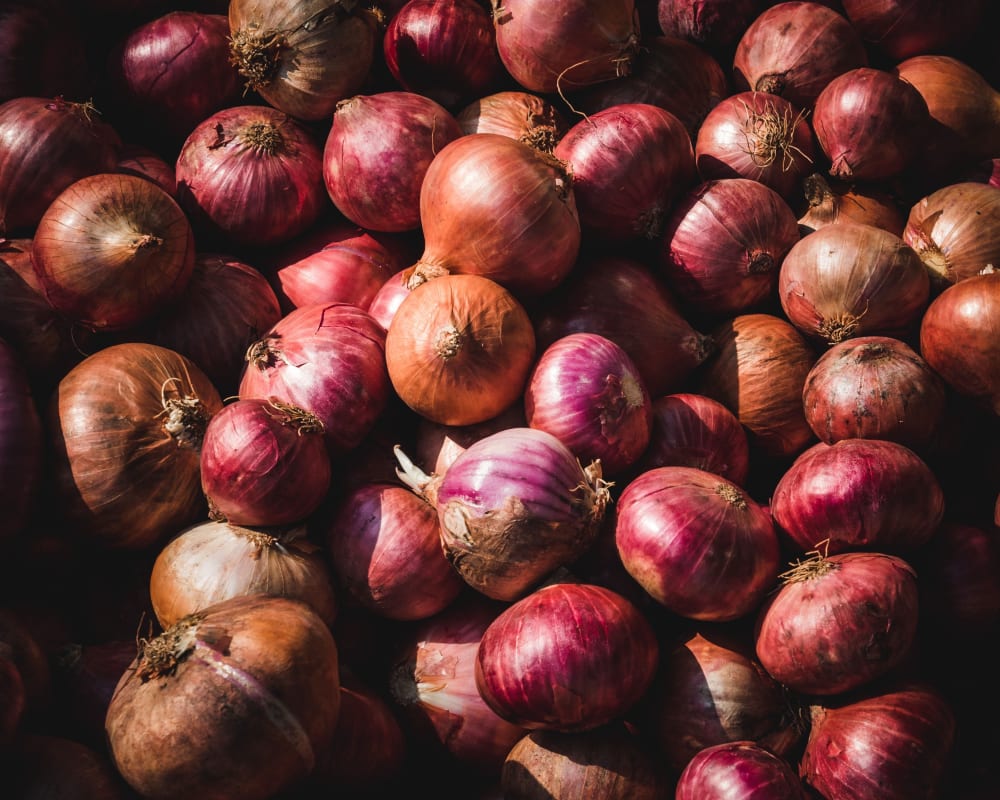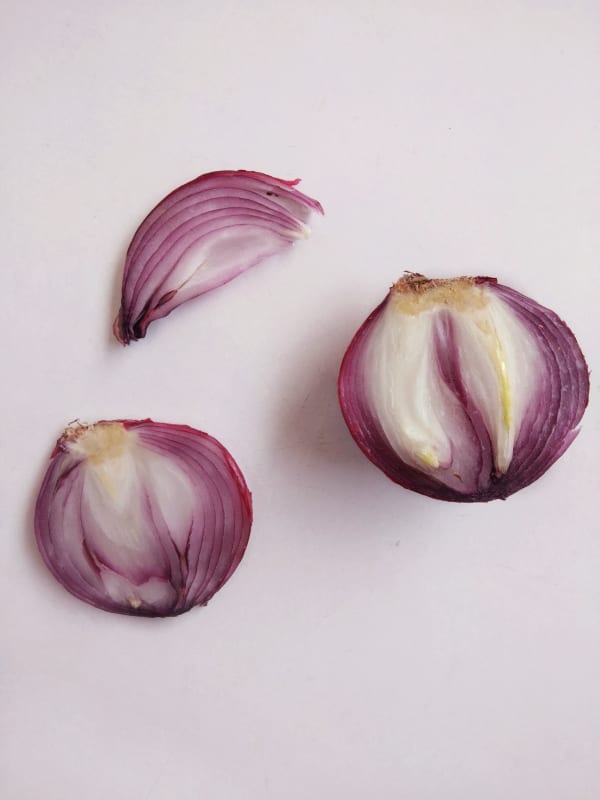Popular Conditions & Diets

Thanks partly to their distinctive concentric rings, the ancient Egyptians saw onions as symbols of eternity. When they entombed the mummified corpse of King Ramesses IV, they set small onions in place of his eyes. More literally, onions symbolize eternity from the vantage point of human history.
Peeling back layers of history, we start to understand why the humble onion has come to symbolize eternity. The first Olympic Games involved onions dating back nearly 3,000 years ago. Grecian athletes used onions to enhance performance. They would eat pounds of raw bulbs, drink their juice, and rub them on their bodies, believing these habits would imbue their limbs with divine strength.
Onions were also found at the site of Pompeii. Archeological excavations of the Roman city famously destroyed, then preserved by volcanic lava, revealed a sophisticated onion production network. Even the sacred texts, the Bible and the Quran, explicitly mention onions.
Suffice it to say that the vegetable has been long praised for its medicinal, symbolic, ceremonial, and edible value across radically different cultures since the dawn of time.

Much of our time-honoured love of onions can probably be explained by how easygoing they are: they keep well, store easily, and lend themselves nicely to drying, fermentation, and other types of long-term preservation.
There is a catch; sulphur compounds are heat sensitive. Eating them raw is the only way to preserve these powerfully aromatic nutrients, but not the more pleasant.
It's a good idea to allow chopped onions to sit for 10 minutes before exposing them to heat. The extra time will let a naturally occurring enzyme called myrosinase activate more sulphur, and more of it will survive the cooking process.
While there isn't much you can do to prevent tearing up, using a sharp knife is your best bet. Clean cuts and even a cold onion will produce less sulphurous gas released into the air.
Either way you dice it, these symbols of eternity have rightfully earned a place in your kitchen.
Bianchini, F., & Vainio, H. (2001). Allium vegetables and organosulfur compounds: do they help prevent cancer?. Environmental health perspectives, 109(9), 893–902. https://doi.org/10.1289/ehp.01109893
Food Articles, News & Features section. Onions: Their History and Developement. (n.d.). Retrieved November 8, 2022, from http://www.foodreference.com/html/onions-history-of-onions.html
How to Cut An Onion Without Crying: The Tried and Tested Ways. (2019, September 4). Retrieved November 8, 2022, fromhttps://misen.com/blogs/news/how-to-cut-an-onion-without-crying
Onion History - Origin and History of Onions. History of Onions - Origin and Historical Use. (n.d.). Retrieved November 8, 2022, from http://www.vegetablefacts.net/vegetable-history/history-of-onions/

They also grow happily in just about any soil and adapt to a wide range of climates.
One of the first things that come to mind when thinking of onions is their pungent smell and ability to bring tears to the eyes. The compound at play here is sulphur.
While crying might be the immediate effect of sulphur, it also supports detoxification. One of the essential liver detoxification pathways is the sulfation pathway.
Sulfation metabolism works by binding toxins to sulphurous compounds for safe escort out of the body.
Like other allium family members, including garlic, leeks, and chives, onions are a fantastic source of natural sulphur. Most of these allium plants are also high in fibre.
Fibre helps clean out the intestines by feeding good bacteria and removing waste. The combination of sulphur and fibre in onions makes this plant excellent for rebalancing and restoring the body.
Onion History. National Onion Association. (2019, December 1). Retrieved November 8, 2022, from https://www.onions-usa.org/all-about-onions/history-of-onions/
Sisson, M. (2022, February 22). Why You Should Eat Sulfur-Rich Vegetables. Mark's Daily Apple. Retrieved November 8, 2022, from https://www.marksdailyapple.com/why-you-should-eat-sulfur-rich-vegetables/